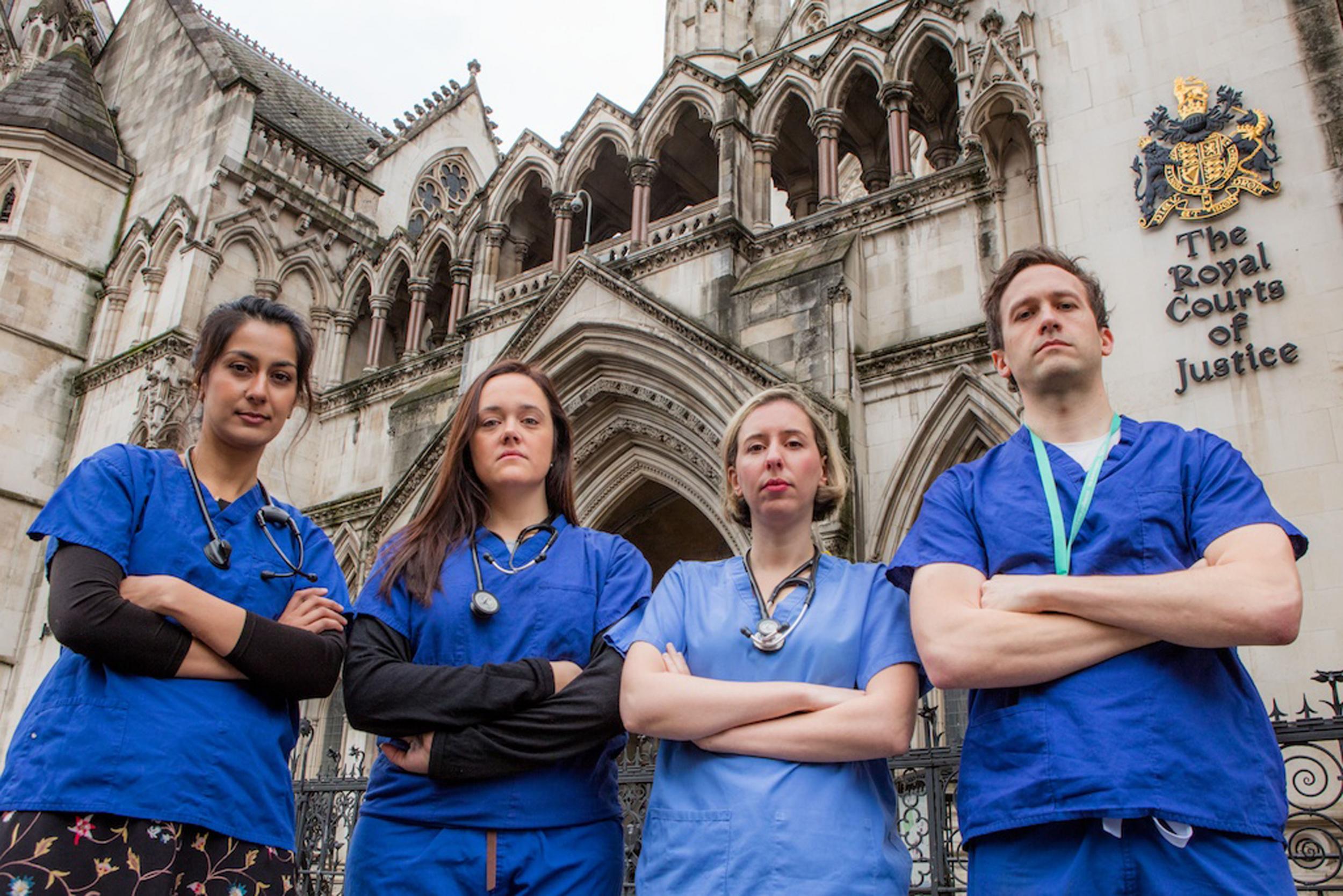My brave colleagues are taking Jeremy Hunt to court. He has no power to impose this terrible contract on our junior doctors
Even the Patients Association is asking the government to step back from political brinkmanship and return to negotiation

There is a move afoot in the junior doctors’ dispute. Today Jeremy Hunt, the Secretary of State for Health, will have court proceedings issued against him by five brave junior doctors over whether or not he holds the power to press the “nuclear” button and impose the hated new contract for junior doctors. The judicial review will question the legality of this move, which has already led to four strikes and a planned withdrawal of all emergency cover next week.
The case is asking whether, by imposing the junior contract, Hunt has acted unlawfully, by purporting to exercise a power that he never had in his hands. This could be the game changer in debate over the contract. After all, if there was never any authority to impose a contract by the Health Secretary, then there is no way for implementation to progress. It would mean the contract is, as the Liberal Democrat Norman Lamb expressed it, “dead in the water”.
Whether legal action will be necessary after all is, this morning, a moot point. In a letter addressed to lawyers representing the doctors, seen by the Guardian newspaper, the Government Legal Department claims Hunt will no longer impose the contract.
Whether or not that is the case, the possibility of bringing the case against Hunt will bring cheer to junior doctors who were left bruised by the mobilisation of a battalion of senior doctors last week, asking junior doctors to step back from withdrawing emergency cover in industrial action at the end of the month.
Professor Sir Bruce Keogh brandished junior doctors as irresponsible and endangering patient safety; Professor Terence Stephenson, the head of the General Medical Council, lay responsibility for this action with junior doctors, suggesting this action may not be justified; Professor Lord Darzi wrote emotively about the “febrile” times we live in, asking junior doctors “to turn the other cheek”; and Dame Sally Davies – though she placated junior doctors by saying she “understood the anger and frustration” – urged doctors to “consider their patients and their professional responsibilities before taking such a drastic step”.
As a junior doctor, I ask these senior doctors to use their influence and voices with the government to encourage dialogue, rather than posturing. Never in the history of medicine in the UK has emergency cover been withdrawn, but 54,000 junior doctors are left with little room for manoeuvre in this bitter, protracted dispute with the government.
The last two strikes have resulted in the suggestion that the junior contract could be imposed and the government refusing negotiate any further with the BMA. Indeed, Ben Gummer, the Minister for Health, states the “the train has left the station” and Jeremy Hunt has previously said the matter is “closed”.
As the date of imposition draws nearer, junior doctors fear the future and have real concerns for the sustainability of the workforce. Across the country there are recruitment and retention crises in difficult to recruit to specialities, including emergency medicine, paediatrics and obstetrics and gynaecology.
Recent data from Health Education England confirms that hundreds of fewer junior doctors have applied to continue their NHS training in these key hospital based specialties. Medical school applications have fallen 13.5 per cent in just two years ago with negative publicity about the NHS being blamed as part of the reason, alongside the rising cost of university education; trainee doctors can expect to be in debt to the tune of £70,000 by the end of their studies.
The number of doctors applying for documentation to work abroad has doubled from just over 4,000 in 2014 to 8,627 in 2015 – and another 2,000 have applied to leave the country this year alone. In my speciality of obstetrics and gynaecology, there has been a 9 per cent fall in fill rate of training posts (previously 100 per cent) and we currently face attrition rates of 20 per cent.
An ever increasing chorus of dissent continues with the Royal Colleges, charities and even the Patients Association asking the government to step back from political brinkmanship and to return to negotiation. Yet, in the words of Sarah Wollaston, chair of the health select committee, the Government continues to “blunder on asserting that the new contract is the answer“.
If the judicial review finds that the Secretary of State does not have the power to impose the contract, then there is no legal precedent for implementation. An immediate solution is possible, by pressing the pause – rather than the “nuclear” – button.
A return to meaningful negotiation over a contract that provides safe patient care but also values the workforce that delivers that care is what both NHS staff and patients want. That action has to come from Cameron. Perhaps he has less taxing matters on his plate, he can intervene and halt industrial action.
Join our commenting forum
Join thought-provoking conversations, follow other Independent readers and see their replies
Comments
Bookmark popover
Removed from bookmarks